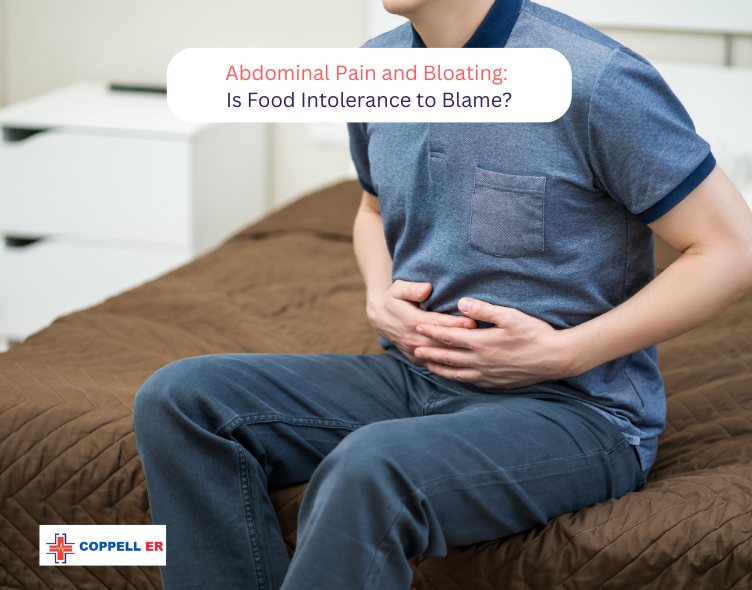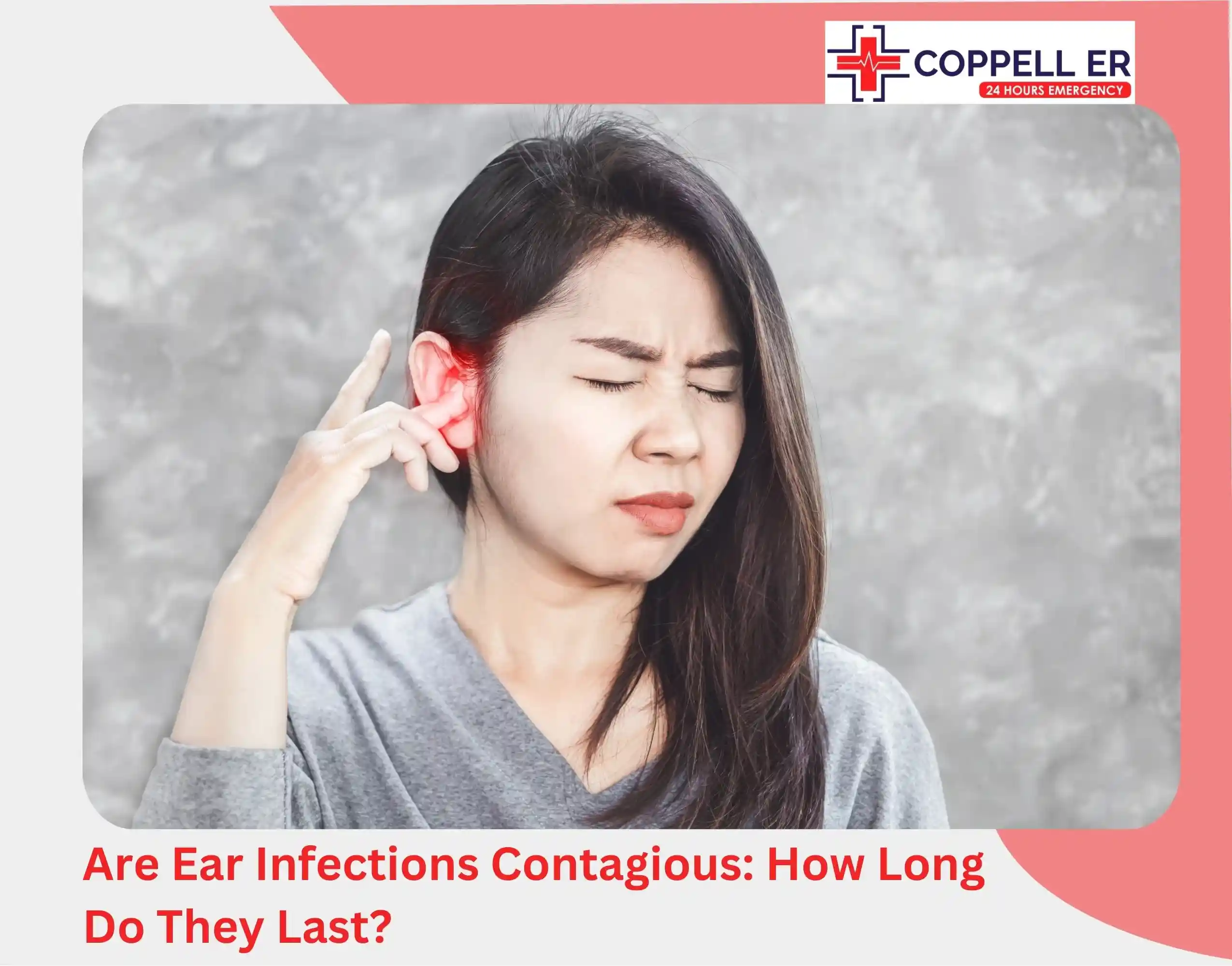A delicious meal should bring joy, not discomfort. Yet for many, the pleasure of eating is often followed by bloating and abdominal pain. When these symptoms become frequent, they may signal a potential culprit: food intolerance.
This hidden adversary can turn your favorite foods into sources of distress. By understanding how your body reacts to certain ingredients, you can pinpoint the triggers and find quick relief.
Let’s explore the symptoms of food intolerance, common offenders, and effective strategies to enjoy food without the ensuing discomfort.
What Is Food Intolerance?
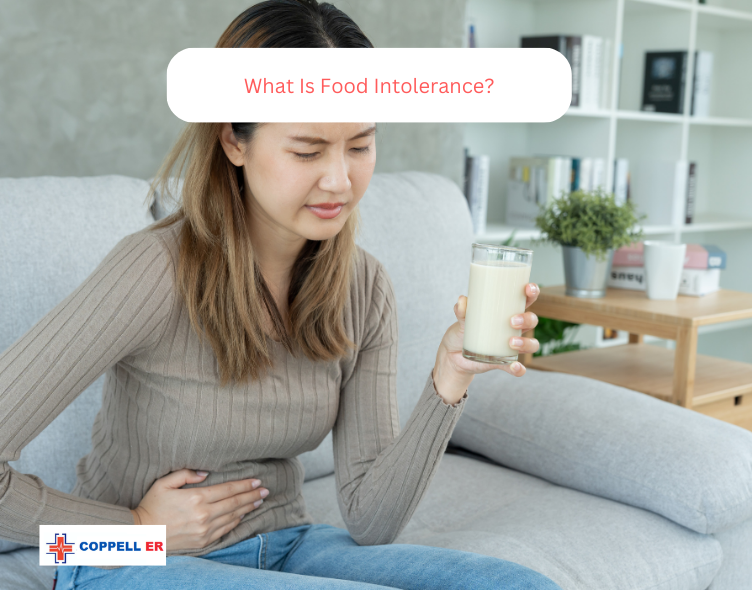
Food intolerance happens when your digestive system struggles to process certain foods or ingredients. Unlike food allergies, which trigger an immune response, food intolerance primarily impacts your digestive tract. This can result in a variety of symptoms such as abdominal pain, bloating, gas, and diarrhea.
Common Symptoms Of Food Intolerance
- Abdominal Pain
- Diarrhea
- Gas and bloating
- Headaches and dizziness
- Heartburn
- Nausea
- Upset stomach
Causes of Stomach Pain and Bloating
Common causes of abdominal pain and bloating include:
- Food Intolerance: Foods such as dairy, gluten, and certain types of carbohydrates can be hard for some people to digest.
- Irritable Bowel Syndrome (IBS): This chronic condition can cause pain, bloating, and changes in bowel habits.
- Gastroenteritis: An inflammation of the stomach and intestines, often caused by infections, can lead to abdominal pain and bloating.
- Gastric Conditions: Conditions such as gastritis or peptic ulcers can cause stomach pain and bloating.
Identifying Food Intolerance
To determine if food intolerance is the cause of your symptoms, consider the following steps:
- Keep a Food Diary: Track what you eat and drink, along with any symptoms that arise. This can help identify patterns and potential triggers.
- Elimination Diet: Remove suspected foods from your diet for a period of time and then gradually reintroduce them while monitoring your symptoms.
- Consult a Healthcare Professional: A doctor or dietitian can help you with diagnostic tests and offer guidance on managing your symptoms.
Common Food Intolerances
- Lactose: Individuals who are lactose intolerant lack sufficient lactase enzymes needed to break down lactose, a sugar present in milk and dairy products. This intolerance is one of the most prevalent.
- Histamine: Histamines are naturally occurring substances found in foods such as cheese, pineapples, bananas, avocados, and chocolate. They are also present in red wine and some white wines. Those with histamine intolerance have insufficient levels of the enzyme diamine oxidase, which is required to metabolize histamines.
- Gluten: Gluten is a protein found in wheat, rye, and barley. Gluten sensitivity differs from celiac disease, an autoimmune condition where gluten harms the small intestine. With non-celiac gluten sensitivity, the body has difficulty processing gluten, but without the autoimmune damage associated with celiac disease.
Treatment for Abdominal Pain and Bloating
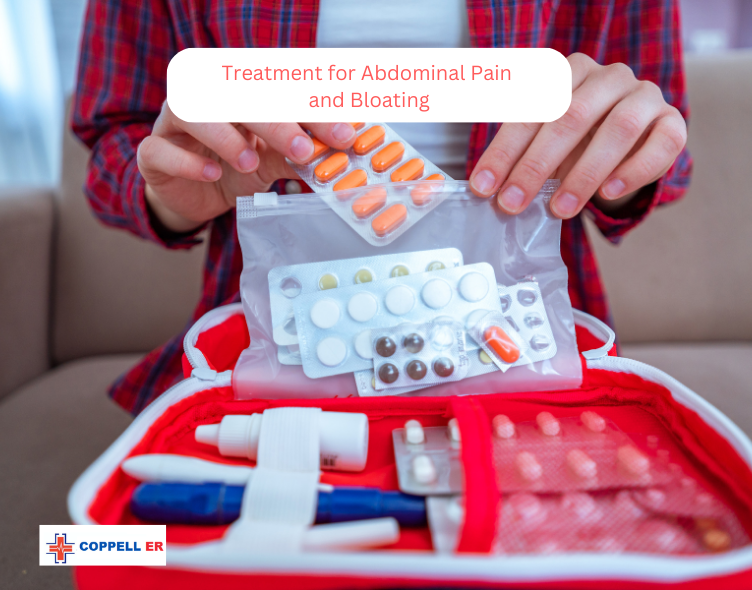
Managing abdominal pain and bloating often involves addressing the underlying cause. If food intolerance is identified, the following strategies may help:
- Avoid Trigger Foods: Once you identify which foods cause your symptoms, avoid them to prevent discomfort.
- Modify Your Diet: Incorporate foods that are easier to digest and reduce the intake of foods known to cause bloating.
- Use Over-the-Counter Remedies: Medications such as lactase supplements for lactose intolerance or digestive aids may provide relief.
- Stay Hydrated: Drinking plenty of water can help with digestion and reduce bloating.
- Practice Mindful Eating: Eat slowly and chew your food thoroughly to aid digestion and reduce the risk of bloating.
Bloating Relief Strategies
In addition to dietary changes, several strategies can help relieve bloating:
- Exercise: Regular physical activity can aid digestion and reduce bloating.
- Avoid Carbonated Drinks: These can introduce excess gas into your digestive system.
- Probiotics: Supplements containing beneficial bacteria may help balance your gut flora and alleviate bloating.
- Stress Management: Stress can exacerbate digestive issues, so incorporating relaxation techniques may be beneficial.
When to Seek Medical Advice
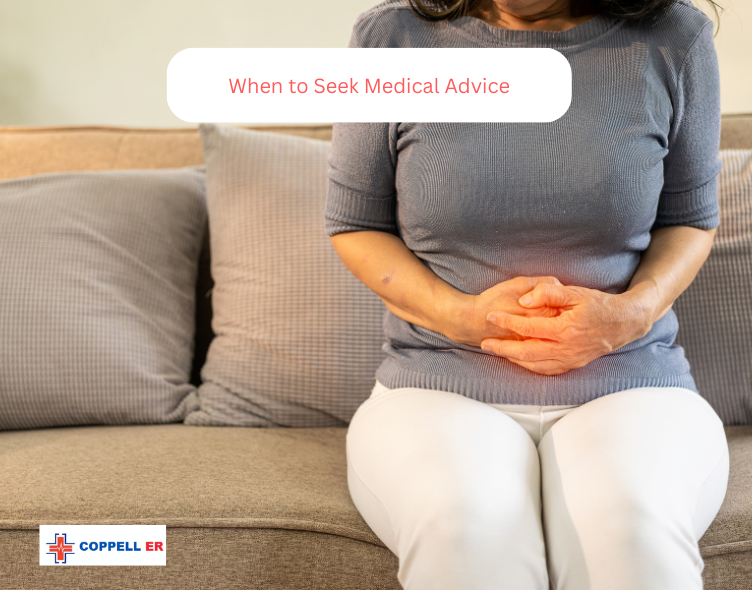
While many cases of abdominal pain and bloating can be managed through dietary changes and lifestyle adjustments, it’s crucial to seek medical advice if:
- Your symptoms persist despite attempts at abdominal relief.
- You notice unintended weight loss or blood in your stool.
- You’ve a family history of gastrointestinal diseases.
At ER of Coppell, our board-certified physicians provide tailored treatment plans for abdominal pain, stomach pain, and bloating. We focus on diagnosing food intolerances and managing symptoms to ensure effective relief and recovery.
FAQs
How Long Does Food Intolerance Bloating Last?
Food intolerance bloating can last anywhere from a few hours to several days, depending on the individual and the type of food that triggered the reaction.
What Is the Most Accurate Food Intolerance Test?
The most accurate food intolerance test is typically an elimination diet combined with a food challenge, as it helps identify specific foods causing symptoms. Blood tests and breath tests may also be used.
What Happens if You Keep Eating Food You’re Intolerant To?
Continuing to eat food you’re intolerant to can lead to persistent or worsening symptoms, such as abdominal pain, bloating, gas, and diarrhea, and may result in long-term digestive issues or discomfort.
Can Hair Show Food Intolerance?
Hair samples are often tested to detect heavy metal poisoning and drug use over time. However, there is no strong evidence supporting the use of hair analysis for identifying food intolerances.
Can Food Intolerance Cause Weight Gain?
Food intolerance itself doesn’t directly cause weight gain, but the discomfort and digestive issues it causes can lead to overeating or changes in eating habits that may contribute to weight gain.

